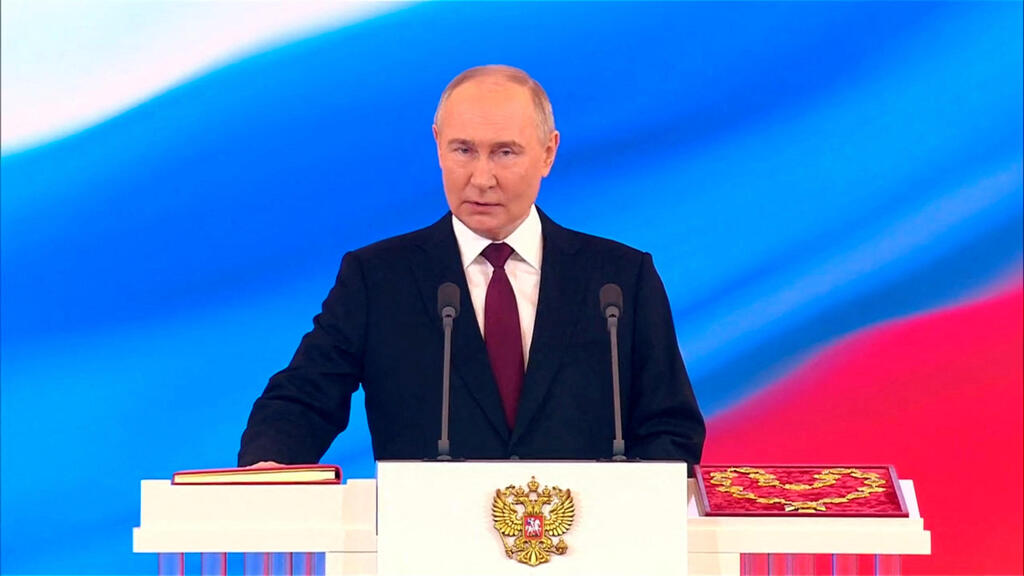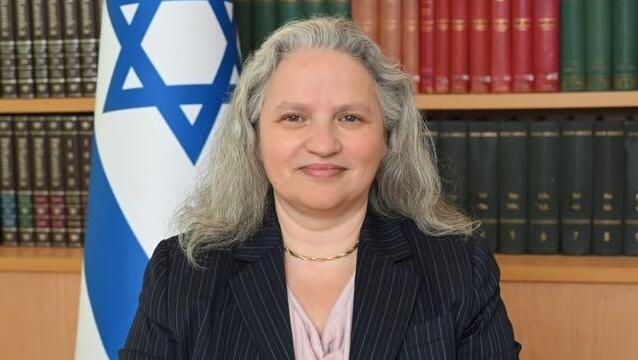Getting your Trinity Audio player ready...
Russian President Vladimir Putin was sworn in for his fifth term, a month and a half after his expected victory in the general elections. Most Western countries, including the United States, Germany and the countries of the European Union, boycotted the inauguration ceremony. However, the ambassador of Israel to Russia, Simona Halperin, attended the event as Israel's representative.
Seven European countries sent ambassadors: France, Portugal, Greece, Hungary, Malta, Slovakia and Belgium. Representatives also came from Singapore and North Korea. Matthew Miller, a spokesperson for the U.S. State Department, said that the U.S. decided not to send representatives to the ceremony, since it does not consider Russia's elections free and fair, but acknowledged Putin's role as Russia's president.
Yulia Navalnaya, widow of Russian opposition leader Alexei Navalny, who died in a Russian prison, released a video message on the day of the inauguration, recalling that Putin's fourth term began with the invasion of Ukraine, resulting in numerous deaths and Russia's isolation. Navalnaya mentioned hundreds of political prisoners under Putin's rule, enduring inhumane conditions.
"For me personally, Putin's six years symbolize the years during which my husband, Alexei, a brave and honest man, a true patriot, was persecuted, attacked with a chemical weapon, imprisoned for three years, and then killed. Putin made it happen. His promises are not just empty; they are lies. It's been going on for 25 years. It will continue this time too. With each term, everything only gets worse. It's frightening to imagine what else will happen while Putin remains in power. With him, there will be no peace for our country, no development and no freedom," she said.
According to the March 2024 election results, Vladimir Putin received 87.28% of the vote, making him the president of Russia for the fifth time. Among those attending the inauguration was actor Steven Seagal, a longtime supporter of Putin who received Russian citizenship in 2018.
Assuming Putin, 71, completes his current term, expected to last until 2030, he will become the longest-serving leader in modern Russian history, surpassing even Stalin. He came to power in late 1999 and has served as president for most of the years since, except for a brief period as prime minister, during which he remained the de facto leader of Russia.
"For Russia, this is the continuation of our path, it's stability," said Sergey Chemezov, a close ally of Putin, shortly before the ceremony. "You can ask any citizen on the street – President Putin has been re-elected, and he will continue on his path, even though the West might not like it."
During the inauguration, Putin delivered a brief speech, in which he said that he does not reject dialogue with the West, but emphasized that such dialogue must be equal. He also mentioned the need to develop relations with other countries, which he referred to as "the majority of the world." Amid Western sanctions on Russia and U.S. and European support for Ukraine, Putin asserted that Russia must remain strong and resilient against any threat or challenge.




